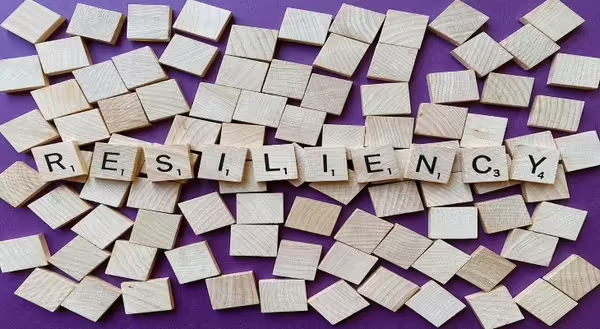
The World Health Organization identifies stress as the global health epidemic of the 21st Century – and that was BEFORE the current pandemic! Everyone experiences stress and sometimes it can be perceived as positive by helping to motivate us to get things accomplished. However, if we accumulate stress and do not manage it effectively, it can become chronic and result in negative effects on our minds and bodies.
Individuals, families, and organizations all experience difficult times which can be stressful. How we manage those challenges and changes indicates how resilient we are. Resilience refers to the ability to adapt, recover and grow stronger from adverse situations. Just think of a rubber band. In order to stay strong during trying times, we must be able to stretch ourselves and even spring forward a little! In the research on adversity and resilience, there are several characteristics or traits that resilient people seem to possess. Also, according to Robert Brooks of Harvard Medical School, resilience can be considered “ordinary magic” because everyone has the capacity to be resilient - it can be nurtured and strengthened.
With this current pandemic creating such difficult times for so many, I thought it was time to revisit this article and share the several traits that resilient people seem to have. I will cover a few in this article and will continue with more in an additional article. Please remember, the qualities I am listing are those we can also develop and make stronger in ourselves.
When faced with adversity, resilient people:
- Are able to reframe the situation and view difficulties as challenges and opportunities for growth. They view crisis as an opportunity to grow stronger and wiser and they view challenges as manageable and NOT permanent. We WILL get through this!
- Learn from the mistakes and failures they have - but they don’t see them as failures. They see them as important lessons and try to learn from them.
- Have confidence in themselves and this belief in themselves enables them to take risks. Think about the “famous failures” you may have heard of – Thomas Edison, Stephen King, Bill Gates, Abraham Lincoln, Oprah Winfrey, and Walt Disney. They all had experienced professional and sometimes personal obstacles and had “failed” a few times before becoming successful. Nevertheless, they could attribute their success to self-confidence and resiliency.
- Have initiative and assertiveness – they know they can’t control the events in their lives from happening, but they can control how they perceive them and how to respond.
- Address the reality of the situation and deal directly with the problem and what they actually have control over. They have what author Diane Coutu calls “realistic positivism” – they see the situation as it is while staying positive about the ability to cope and conquer.
- Are flexible by being open to new ideas and letting go of traditional ways that no longer work. They can cope with change, are adaptive and think outside the box.
- Are compassionate - because they know that when you are kind to others, it makes you feel good.
- Are creative and have a sense of humor. Research shows that humor improves mood, relieves pain, improves the immune system, soothes tension and relieves stress. It also helps us have a different perspective on things and allows us to distance ourselves a bit from problems.
This is quite a list so far, but there are many more, so I will continue with this list of resiliency characteristics in the next article. Stay tuned for more!!
Sources:
Temlin, D. (2015) Resilience – New Research Helps Us Bounce Back Quicker, Better From Life’s Trials and Tragedies. Forbes. Retrieved from www.forbes.com/sites/daviatemin/2015/08/31/resilience-new-research-helps-us-bounce-back-quicker-better-from-lifes-trials-and-tragedies/#6995d5e56945